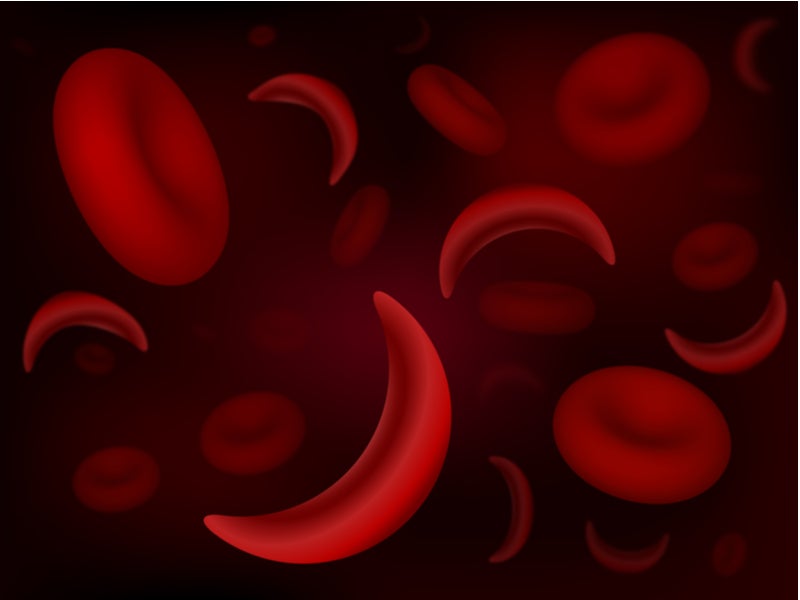To mark sickle cell awareness month in the US, GlobalData took a comprehensive look at the global sickle cell disease (SCD) clinical trial landscape over the last five years to observe and identify trial-related trends.
GlobalData analysed the number of SCD clinical trials with start dates between 2 September 2014 and 2 September 2019. SCD comprises a group of inherited disorders caused by mutations of haemoglobin subunit beta (HBB). The mutation induces the production of an abnormal version of haemoglobin named haemoglobin S (HbS), a beta-globin that leads to the production of abnormally shaped red blood cells and the consequent symptoms of SCD.
The majority of trials carried out in this period is early stage, with 52.5% of trials in Phase II of development and 29.6% of trials in Phase I. Focusing on later-stage trials, Phase III trials (14.2%) outnumber Phase IV trials (9.3%). Due to the trial phase distribution showing a greater proportion of early phase trials, it is not surprising that 82.9% of SCD trials are single-country trials, with only 17.1% being multinational trials.
The greatest number of SCD clinical trials were carried out in North America (56.5%), followed by Europe (20.1%), The Middle East and Africa (16.6%), South and Central America (4.9%), and Asia-Pacific (1.9%). Focusing specifically on countries, the US dominates the research space with 53.5% of trials, outnumbering the combined number of trial locations for the remaining top five countries. France is in second place and has the highest number of clinical trial locations in Europe (3.9%). France is followed by Italy and the UK with an equal number of trial locations (3.2%) and Canada is in fifth place (3.1%).
Non-Industry sponsored clinical trials outnumber those of their industry-sponsored counterparts, with 60.8% and 39.2% of trials, respectively. However, the industry sponsor Global Blood Therapeutics Inc sponsored the largest number of clinical trials (5.4%).
Hydroxyurea, voxelotor, ketamine and plerixafor
Hydroxyurea is the most researched drug for SCD. The therapeutic agent is predominantly investigated by non-industry sponsors, which may be attributed to its patent-free status in the US and consequent availability.

US Tariffs are shifting - will you react or anticipate?
Don’t let policy changes catch you off guard. Stay proactive with real-time data and expert analysis.
By GlobalDataGlobal Blood Therapeutics’ voxelotor is the second most frequently investigated agent. Voxelotor stabilises the structure of HbS, enhancing its affinity to oxygen while also preventing polymerization and sickling, thereby reducing red blood cell damage and improving blood flow.
Ketamine is the third most investigated drug for SCD. However, pain is referenced as a co-indication in the majority of trials (71.4%). As such, ketamine is typically assessed to determine its effectiveness as an analgesic for patients experiencing sickle cell crises.
Sanofi’s plerixafor serves as the fourth most investigated drug. Plerixafor is a hematopoietic stem cell mobilizer that is usually used in patients with lymphoma or multiple myeloma, but it is now being researched in the treatment of SCD.
At present, a bone marrow transplant is the only cure for SCD. It is typically reserved for younger patients due to the increased risk of morbidity and mortality in patients with advancing age. Most SCD therapies largely revolve around alleviating the symptoms of SCD, but voxelotor displays significant promise as the first disease-modifying agent. Voxelotor has recently been granted priority review by the FDA, and its case is supported by positive findings in the ongoing Phase III GBT_HOPE trial.






